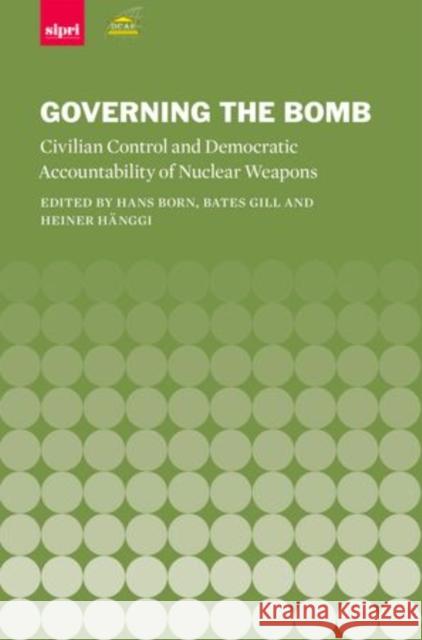Governing the Bomb: Civilian Control and Democratic Accountability of Nuclear Weapons » książka
Governing the Bomb: Civilian Control and Democratic Accountability of Nuclear Weapons
ISBN-13: 9780199589906 / Angielski / Twarda / 2010 / 264 str.
'Go nuclear' or 'go zero'--as the international community stands at a nuclear crossroads, a number of questions demand urgent attention: How do established and emerging nuclear-armed states manage their nuclear affairs? Who commands and controls a country's nuclear forces? What effect does the balance between secrecy and openness have on larger questions of security and democracy?
Governing Nuclear Weapons is grounded in the belief that the public's ability to hold nuclear-armed states accountable for the security of their weapons is contingent on proper knowledge of domestic nuclear governance. With a special emphasis on civilian control and democratic accountability, it seeks to illuminate the structures and processes of nuclear weapons governance of eight nuclear-armed states: China, France, Russia, the UK, and the US, as well as India, Israel, and Pakistan.
It examines the theoretical as well as practical functions and structures of those who possess the power to make nuclear decisions and those who have the practical means and physical opportunity to execute those decisions. While the book assesses the whole spectrum of political oversight and control mechanisms in operation for each country--including the roles and requirements of the executive, the military and specialized civilian institutions--it also takes a closer look at parliamentary institutions and civil society at large.
As nuclear terrorism, proliferation and disarmament vie for the top slot on the global security agenda, a comparative understanding of the various national nuclear discourses is no longer optional, but required.











